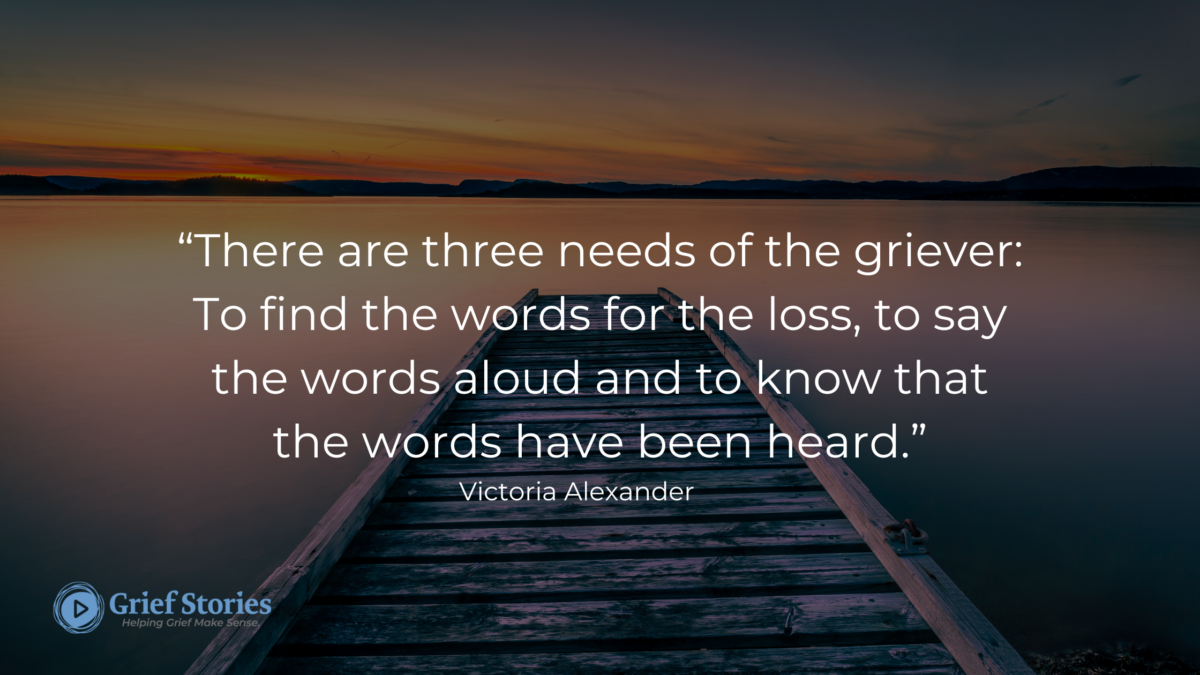A lot of my work with clients involves hearing their stories, but also answering many questions about if their grief is “normal”. Their grief is overwhelming, and our dominant culture’s strong message is – that grief should be kept at its edges, I often find this pervasive intention creeps into griever’s experiences – and my worldview at times. I even catch myself apologizing for crying in public spaces, shutting down my process. There are many ways of doing, being, and knowing, which I continue to learn through the spaces I hold with others.
A Ghanaian woman living in Canada shared with me her experiences after the death of her mother who died in their home country of Ghana. Traditionally, when someone dies in their community, their body is laid in the home and the entire community is welcomed. Feasts, songs, stories, cries, wails. Their world stops – and for longer than a mere few hours. Loud, open expressions of grief are honoured and welcomed.
A Chinese woman expressed worry that something was wrong with them. After attending a grief support group, she felt worse rather than better. So many people have shared how helpful these spaces had been for them, but this wasn’t her experience at all.
A White man sits across from me and tells me his wife encouraged him to try therapy because “he isn’t grieving” since he doesn’t openly share his emotions. One finds comfort in storytelling, talking about the loss of their child, and finds crying cathartic. He speaks about the qualities and memories of their child, practical matters over emotional ones, and their passion for bringing forth advocacy and change concerning the drug poisoning epidemic.
An Indigenous woman speaks about a ritual in their community where the grieving family cuts their hair after a loved one’s death. On one hand, they feel guilt at times for not engaging with it because it “makes it real”. However, getting a tattoo of a flower they got after their mother’s death was their ritual.

In North America, we are quick to try to “fix” or “solve” grief. There are many books, support groups, and online communities about grief. Yet I have had more than a handful of clients who have recently experienced a death share how their doctor offered them a psychopharmacological medication before their doctor may even acknowledge their loss. I think about the Ghanaian woman, and how open and welcome grief is within their local community. I can only imagine how stifling tending to these rituals in North America may have felt to this person if their mother died in Canada.
There is no “magic pill” to prescribe, but I know many people in the depths of their grief wish there were something, anything to “fast forward” through the sleepless nights, waves of emotion, and grief bursts to a place where their grief feels less overwhelming. There is no right or wrong way to grieve, only yours.
Here are some gentle prompts for you to explore some ways to tend to your grief:
What brings meaning or comfort, to you?
Are there particular rituals your community (spiritual, ethnic, other identities) find important to help honour your loved one?
Which rituals do you find comforting but at times find it difficult to share with others?
Just because White colonizer culture is dominant in North America, does not mean those perspectives are “the right way” through grief and loss. There are many ways of being, doing and knowing in life and in grief.
___________________________________________________________________________________________________________
By Jessica Milette, MSW, RSW . Grief Stories Healthcare Consultant
Jessica is a registered social worker and owner and of Cultivating Connections. Her expertise includes helping individuals and families facing anticipatory grief, ambiguous loss, disenfranchised losses, and sudden deaths. Jessica believes in the power of connection; within ourselves, with those who have died, those we are in relationship with, and with our greater communities. Through sharing our stories of grief and loss, we tend to our connection with those who have died and creating connections with others.
Jessica is a white woman living on the traditional territory of the Anishnabek, the Haudenosaunee, the Attiwonderonk, and the Mississaugas of the Credit peoples, also known as Guelph, ON.
